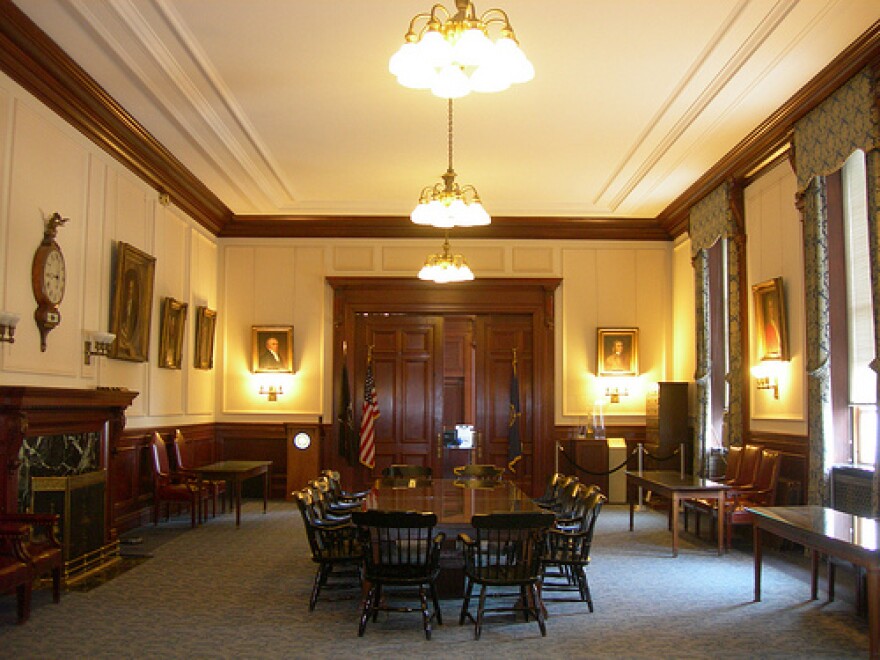New Hampshire voters will choose a number of local political leaders, from county officers to state reps, on Nov. 3.
Every Friday leading up to the election on Weekly N.H. News Roundup, we talk about one of these down-ballot offices, from what powers they hold, to how they impact your daily life.
We talked with Josh Rogers, NHPR's senior political reporter, about the Executive Council. Check out Civics 101's in-depth explainer on the position.
In brief: A five member council that is sometimes called “the board of directors for the state government,” and unique to New Hampshire.
What does the Executive Council do?
Josh Rogers: It is five members, each representing a chunk of the state. It controls awarding contracts, it controls governmental appointees and lower level judicial appointments, which they have to confirm. It controls the release of money from the treasury.
We saw this a little bit earlier in the year when there was a dispute over COVID-19 spending.
It can pardon the Governor, it can pardon people who are convicted of crimes. There is a bit constituent service element. The council can also set turnpike toll rates.
Right now, it is 3-2 Democrats, and in the last couple of years, has been sort of a choke point for Governor Sununu when it comes to getting his way.
Who usually runs for a position on the Executive Council?
Josh Rogers: It had not, until quite recently, been broadly seen as a sort of political stepping stone. Judd Gregg, who is certainly one of the most successful New Hampshire politicians in the last half century, started in the Executive Council before being a congressman, governor, and U.S. senator.
But until Judd Gregg and, really, the last few election cycles, it hasn’t really been seen as a place that was really a springboard.
Governor Sununu sat on the Executive Council for three terms. His challenger in 2016, Colin Van Ostern, was an Executive Councilor.
We’ve had Andrew Volinsky, who lost in the Democratic primary for governor this year also on Executive Council, and Congressman Pappas as well.
So this position typically serves as a springboard?
Josh Rogers: You can make a case that it’s a good place for somebody seeking higher office to get their start because you represent a fifth of the state, you’re sort of in the thick of government, but you’re not voting on divisive policy issues. So it allows you to run potentially on a little bit more of a blank slate.
It used to be a little bit sleepier politically. And oftentimes, you had people on the Executive Council who were really focused on constituent service rapport, and who sat on the Council for years and years. In that respect, it’s become arguably a little bit more partisan than it used to be.
What power does the executive council have?
The Council can exert great power and can also stymie a governor. It’s a powerful position that can have a lot of sway over how state government operates.
They also have a say over the nominations to the state Supreme Court, right?
Josh Rogers: Well, that has been a big issue. That has probably been the most high profile matter this year, the Council’s rejection of Governor’s nomination for the Supreme Court, Gordon MacDonald.
Governor Sununu had put two justices on the five-member court already… and the Governor said he would like to have Gordon MacDonald, the Attorney General, join the Court, and the Democrats on the Council blocked it.
The Governor has now left that seat vacant for more than a year, which is pretty interesting in terms of the Supreme Court. Governor Sununu wants MacDonald on the Court, and he’s waiting to see what happens in these elections. And if you get a Republican majority, I think it’s all but certain that we’re going to see the MacDonald nomination brought back, and maybe with a different result.








